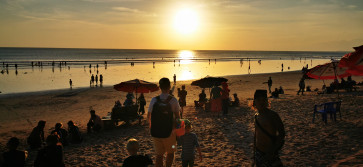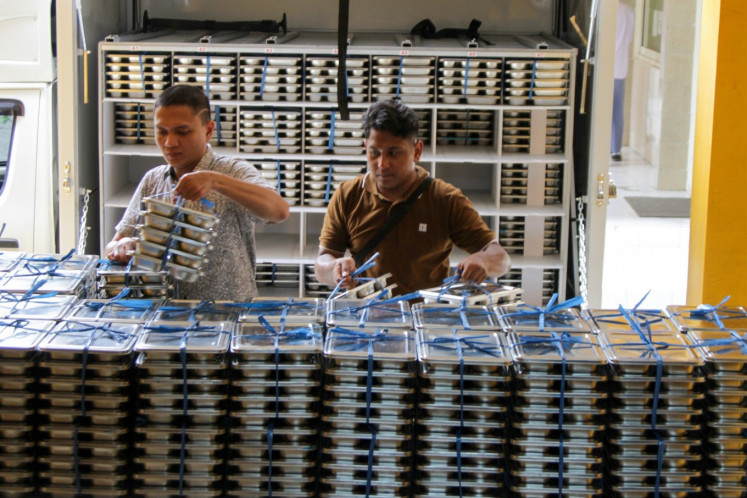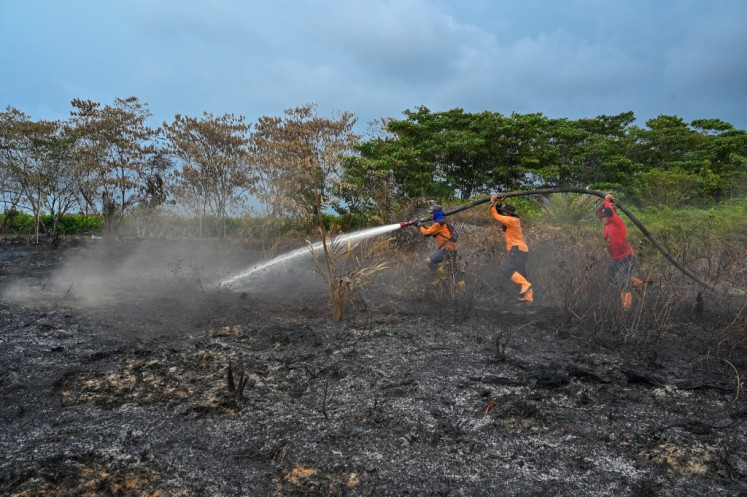Religious, global leaders to attend World Peace Forum
New York’s Islamic Center head Shamsi Ali, representatives of the Moro Islamic Liberation Front in the Philippines, scholars from Iran, Egypt, Russia and Japan will be among participants and speakers at the World Peace Forum scheduled next month in Jakarta
Change text size
Gift Premium Articles
to Anyone

N
ew York’s Islamic Center head Shamsi Ali, representatives of the Moro Islamic Liberation Front in the Philippines, scholars from Iran, Egypt, Russia and Japan will be among participants and speakers at the World Peace Forum scheduled next month in Jakarta.
The Forum’s sixth conference is co-hosted by the Center for Dialogue and Cooperation among Civilizations (CDCC) of Indonesia’s second-largest Islamic organization, Muhammadiyah, and the Cheng Ho Multicultural Education Trust based in Malaysia.
Themed “Countering violent extremism: Human dignity, global injustice and collective responsibility”, the conference planned for Nov. 1 to 4 seeks to address violent extremism at the national and global level, organizers said.
President Joko “Jokowi” Widodo is slated to open the conference that is to be closed by Vice President Jusuf Kalla.
CDCC chairman Din Syamsuddin said on Tuesday that despite many parties allocating much attention to fighting extremism “in the name of religion, ethnocentrism and political interests”, results seemed far from hopeful.
“Violent extremism and global in justice should become a collective responsibility among governments, stakeholders and civil society,” he said.
Din, the former chairman of Muhmmadiyah, said injustice was a major contributor to violent extremism, which takes the form of “physical and verbal violence, state violence and capital violence”.
The planned conference takes place amid continued attacks blamed on violent Islamists.
Last Monday, New York unveiled a major public campaign to fight Islamophobia in the wake of a Manhattan bomb attack blamed on a radicalized Afghan-American.
In August, more than 200 Sunni Muslim scholars from around the world convened in Grozny, Chechnya.
The concluding statement, which defined Sunni Islam, also the majority school of Islam in Indonesia, excluded the Wahhabi, the main Islamic strand of Saudi Arabia.
The statements of its clerics, whom consider other Muslims and even other Sunni as unbelievers, have been blamed as justifications of violence, among others by the Islamic State (IS) movement.
Muhammadiyah secretary-general Abdul Mu’ti said violence rooted in extremism was related not only to religion but also political, cultural and economic factors.
“It’s a big challenge to create peace in the world. The word ‘peace’ seems far from an ideal peace as violence is escalating, especially in the Middle East,” he said.
Speakers and participants who have confirmed their attendance include former Australian prime minister Kevin Rudd, Bishop Gunnar Stalsett of Norway, the co-chair of the Australian National Dialogue of Christians, Muslims, and Jews Jeremy Jones, Moro Islamic Liberation Front representative Mohagher Iqbal, Mohammad Mahdi Taskhiri, the director general of the Center for Interreligious Dialog from Iran, Xhabir Hamiti from the Islamic Community of Kosovo and the emeritus professor Mitsuo Nakamura of Chiba University, Japan. (sha)









